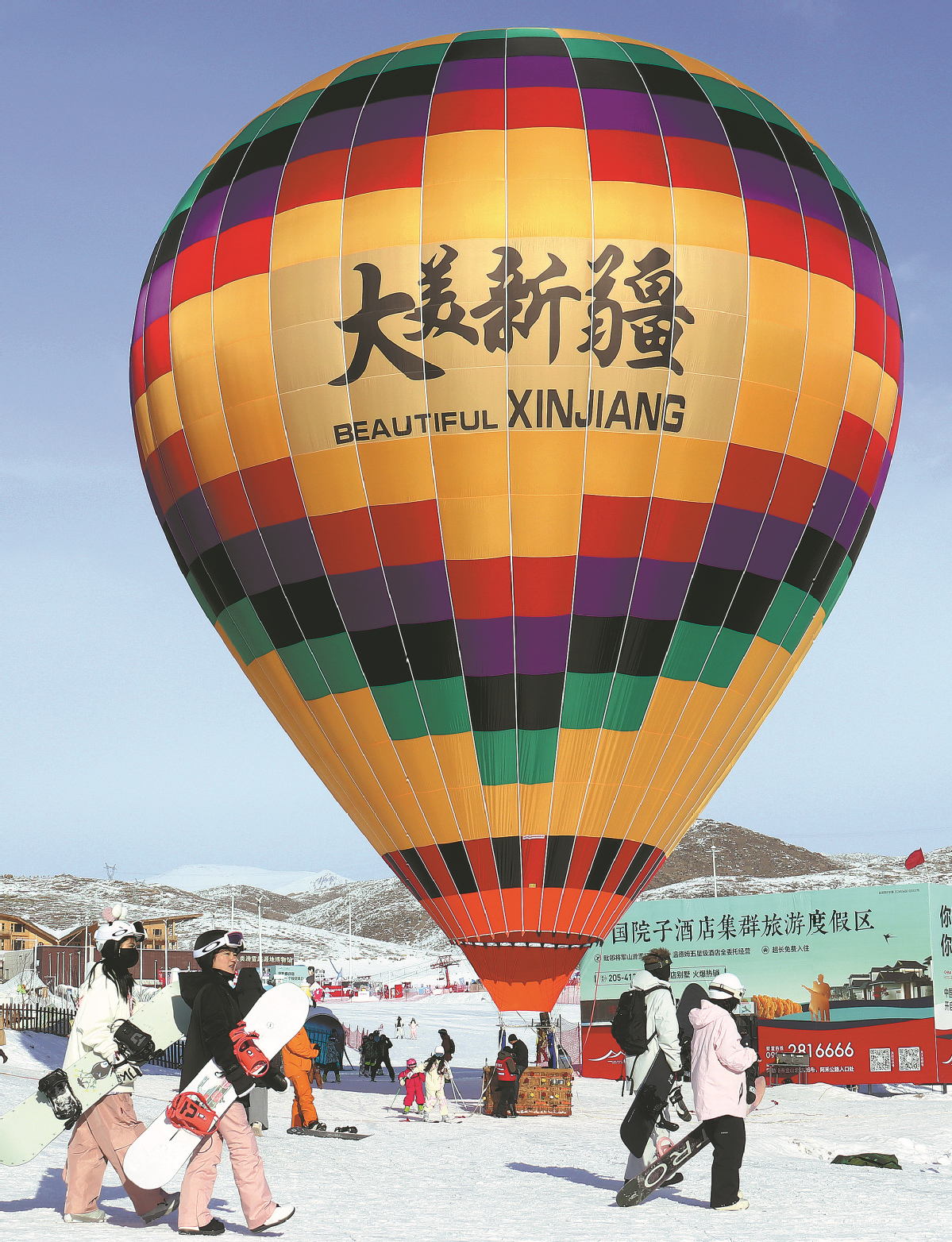
BEIJING/HOHHOT – China's northern regions are turning ice, snow and cold weather into golden opportunities, with tourists flocking to such winter wonderlands, heating up the ice and snow economy that is also gaining support from favorable government policies.
The tone-setting Central Economic Work Conference earlier this month called for more efforts to vigorously boost domestic consumption, and the ice and snow economy was particularly mentioned as a key area of development in the country next year.
China has unveiled an ambitious plan to develop its ice and snow economy as a new economic driver, targeting a total market size of 1.2 trillion yuan ($164.4 billion) by 2027 and 1.5 trillion yuan by 2030, according to a guideline recently released by the State Council.
READ MORE: China's winter economy heating up rapidly
The ice and snow market in China is set to experience growth with continuous improvement of infrastructure, diversified market demand, as well as increasingly diverse offerings of products and advanced technologies, said Sean Jia, partner and managing director of consultancy Frost & Sullivan China.
"The business growth of enterprises that operate ski resorts has been the fastest, and the segment is expected to maintain steady growth in the next few years. The competition in the outdoor equipment sector is relatively fierce," Jia said.
This winter, China's ice and snow tourism sector has continued to welcome travelers nationwide, and the "ice city" of Harbin in Heilongjiang province remains the hottest destination, said Tuniu Corp, a Nanjing, Jiangsu province-based online travel agency.
During the 2023-24 winter travel season, Harbin went viral and received more than 87 million trips of visitors, surging 300 percent year-on-year. The city achieved tourism revenues of 124.8 billion yuan, soaring 500 percent over the same period a year prior, significantly contributing to its GDP growth, said the local government.
The popularity of ice and snow tourism is not limited to Northeast China. Altay, a "snowy city" in the Xinjiang Uygur autonomous region — and other cities in Xinjiang such as Urumqi — are also listed as top hot spots.
ALSO READ: China plans to boost ice & snow economy, targeting 1.5t yuan by 2030
"The unique local ritual of boiling tea around the stove in Xinjiang is highly favored by winter enthusiasts," said Qiao Chengwei, director of domestic tourism business at Tuniu.
The Inner Mongolia autonomous region is also attracting the attention of travelers. Since November, the region has launched a series of unique events. For instance, in the city of Yakeshi, travelers can experience snowmobiling and horseback riding across snowy vistas, the local culture and tourism bureau said.
Chen Chen, a traveler from Beijing, recently took a trip to Ulaanqab in Inner Mongolia.
"Besides skiing, we can also experience seeing glaciers, ice and snow festivities, and over 20 other related activities there. It's full of fun," Chen said.
This winter, the number of travelers taking ice and snow-related trips in China is expected to reach 500 million person-times, surpassing the figure of 385 million recorded last winter, according to a research report on the development of China's ice and snow industry released during the World Winter Sports (Beijing) Expo in October.
Fueled by favorable policies, the ice and snow industry has also become a hot topic in the capital markets, and since mid-December, the trading of ice and snow concept stocks has been quite active. Tourism sector-related stocks have outperformed the broader A-share market as of late.
READ MORE: China's winter tourism, sports hit peak stride nationwide
Shanghai-listed Changbai Mountain Tourism Co Ltd and Dalian Sun Asia Tourism saw their shares close about 3 to 4 percent higher on Friday.
In addition, Beijing Oriental Zhuoyong Investment Management Co Ltd, a company wholly owned by New Oriental Education and Technology Group, invested 370 million yuan earlier this year in the management company of Thaiwoo Ski Resort in Chongli district, Zhangjiakou, Hebei province, as the company is bullish on the business growth potential of the ski resort.
Contact the writers at zhuwenqian@chinadaily.com.cn


